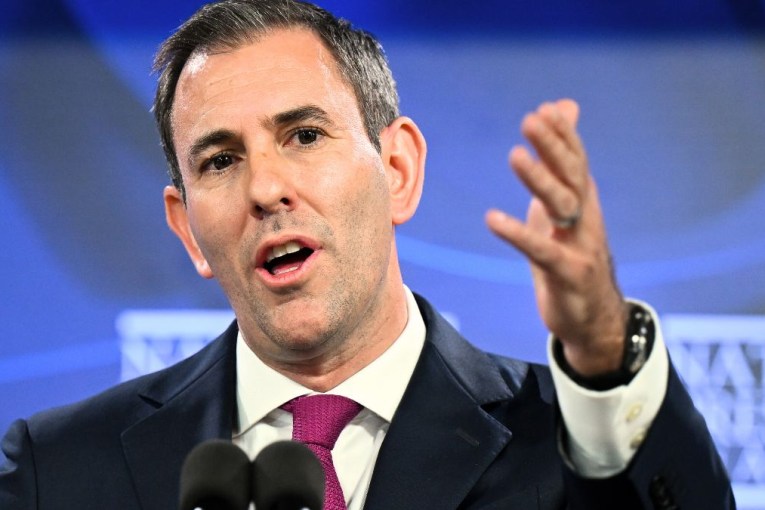Greek ‘no’ vote sends Aussie dollar plummeting
Australian shares are down more than 1 per cent on increased ‘Grexit’ fears and the Australian dollar has fallen around two cents in two trading days to be at its lowest level since 2009.
Fetching around 76.5 US cents as Australian traders ended their week, the local currency lost about a cent in European trade on Friday ahead of Greece’s vote.
The Australian dollar then lost around another cent as traders returned to their desks on Monday morning, after the Greek population resoundingly rejected the austerity measures proposed by the nation’s international creditors as a condition of further bailout funds.
• Greek referendum: the people say no
• The tragic face of the Greek crisis
• Greek levels of debt? no. Here’s our real debt crisis
By 11:30am (AEST) the Australian dollar had bounced slightly from its morning low of 74.52 US cents to be worth 75.1 US cents.
Perhaps surprisingly, the Australian dollar is not much changed against the euro at 68 euro cents, with the continent’s common currency holding up roughly as well as the Aussie dollar on global markets despite the further uncertainty generated by the Greek referendum.
The euro has, however, lost around a cent against the greenback, and fallen even more heavily against the Japanese yen.
The Australian share market has also taken an early hit, but perhaps not as big as many analysts had feared.
The benchmark ASX 200 index was off around 1.5 per cent soon after the open, but had pulled back some of the losses to be down 1.2 per cent at 5,470 by 11:33am (AEST), while the broader All Ordinaries index saw a 68-point fall to 5,460.
The red ink is spread across the market, although the major iron ore miners are being hit a little harder after Chinese spot prices fell another 6 per cent to $US54.10 a tonne on Friday.
The major banks were faring reasonably well in the face of the global turmoil, with ANZ and NAB off around 1 per cent, while Westpac’s 1.7 per cent decline was the worst of the big four.
Market analysts had warned that shares globally, including in Australia, could be hit hard early on the “no” vote.
“Opinion polls had been pointing to a narrow vote in favour of the referendum, a ‘yes’ vote, and the 61 per cent ‘no’ vote is very surprising, obviously to Europe’s other leaders, but also to financial markets,” observed economist Saul Eslake on the AM program in the wake of the result.
“Markets hate surprises, or they react to surprises, and so we’ve seen this morning a flight out of Europe.”
All eyes on eurozone meetings
Mr Eslake said an even bigger market reaction could follow based on the response to the referendum by the leaders of Europe’s biggest nations.
“There’s a spectrum of possibilities between in-effect forcing Greece out of the euro, to capitulating to many of the Greek government’s demands for debt forgiveness and restructuring, and a lightening of Europe’s expectations as to the amount of further austerity the Greek government is expected to impose,” he explained.
“There wouldn’t be much support elsewhere among Europe’s leaders for the latter option, particularly among other countries who were in a fragile position four years ago but have swallowed much of the unpleasant medicine that the Greeks have consistently balked at.”
The German and French leaders are meeting later tonight to try and reach a joint position on further negotiations with Greece in light of the result.
Their meeting comes ahead of a full eurozone summit on Tuesday that will resume negotiations.
Critically, the European Central Bank’s (ECB) governing council is also due to meet later today to decide whether to continue extending the emergency credit that has been keeping Greek banks afloat.
Societe Generale said in a note this morning that it expects the ECB to keep funding Greek banks until it becomes clear that a bailout deal cannot be reached – a possibility it said is rising.
“The ‘no’ vote does not mean immediate Grexit but the probability stands now at 65 per cent,” the investment bank warned.
The nation’s banks remain closed with a 60 euro limit on ATM withdrawals, which many analysts believe will be lowered further.
It was originally expected that Greek banks would reopen on Tuesday, however that will be dependent on the ECB’s decisions regarding funding, and any move to reopen would also need to come with heavy capital controls to stop money flooding out of the nation’s already teetering banking system.
– ABC








